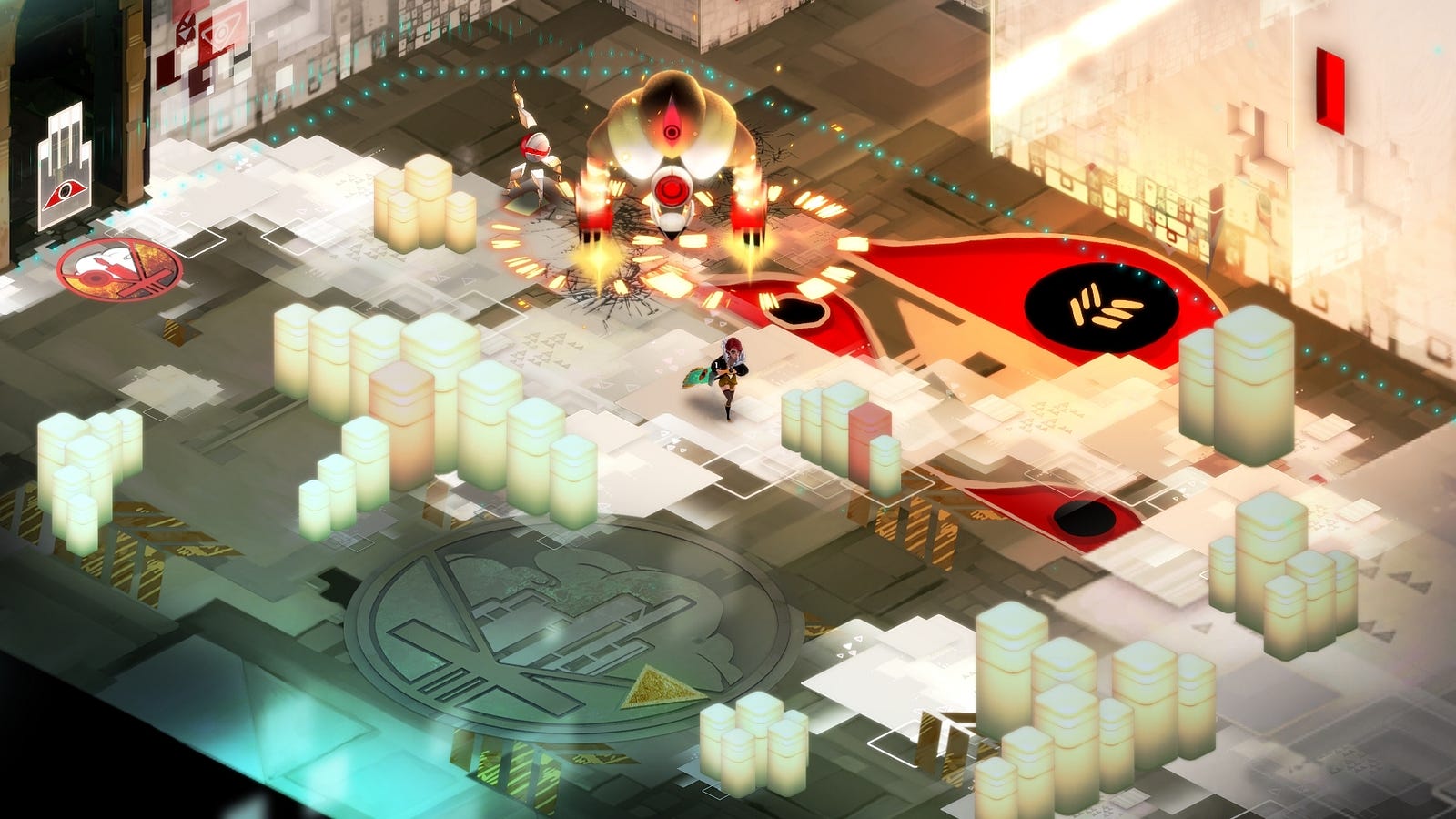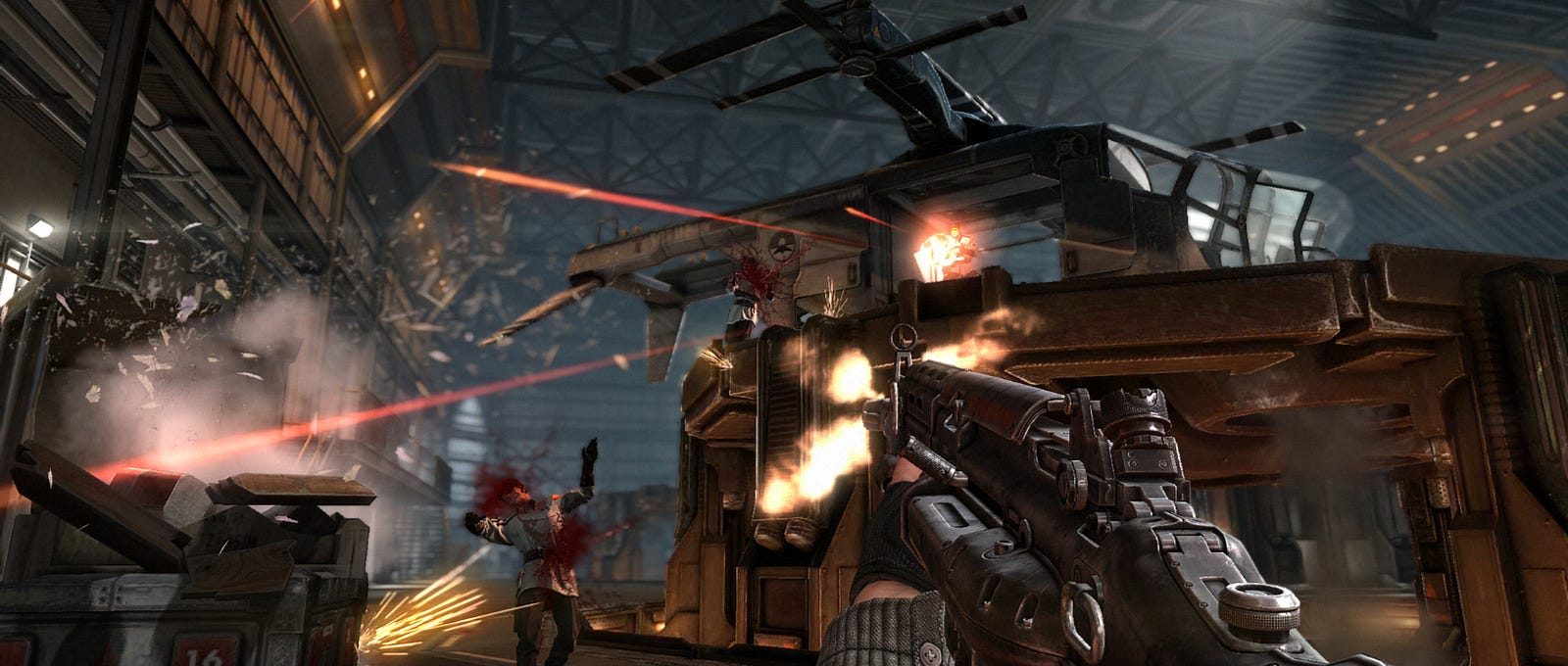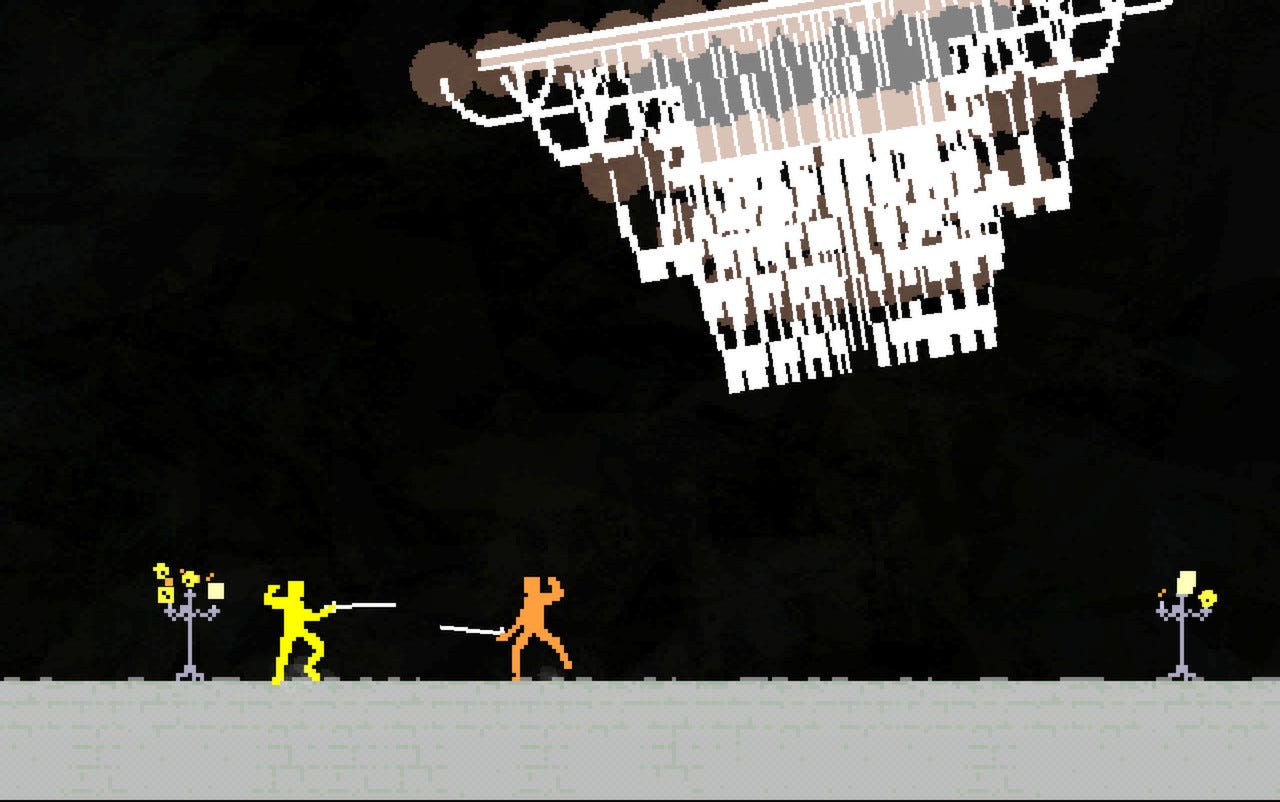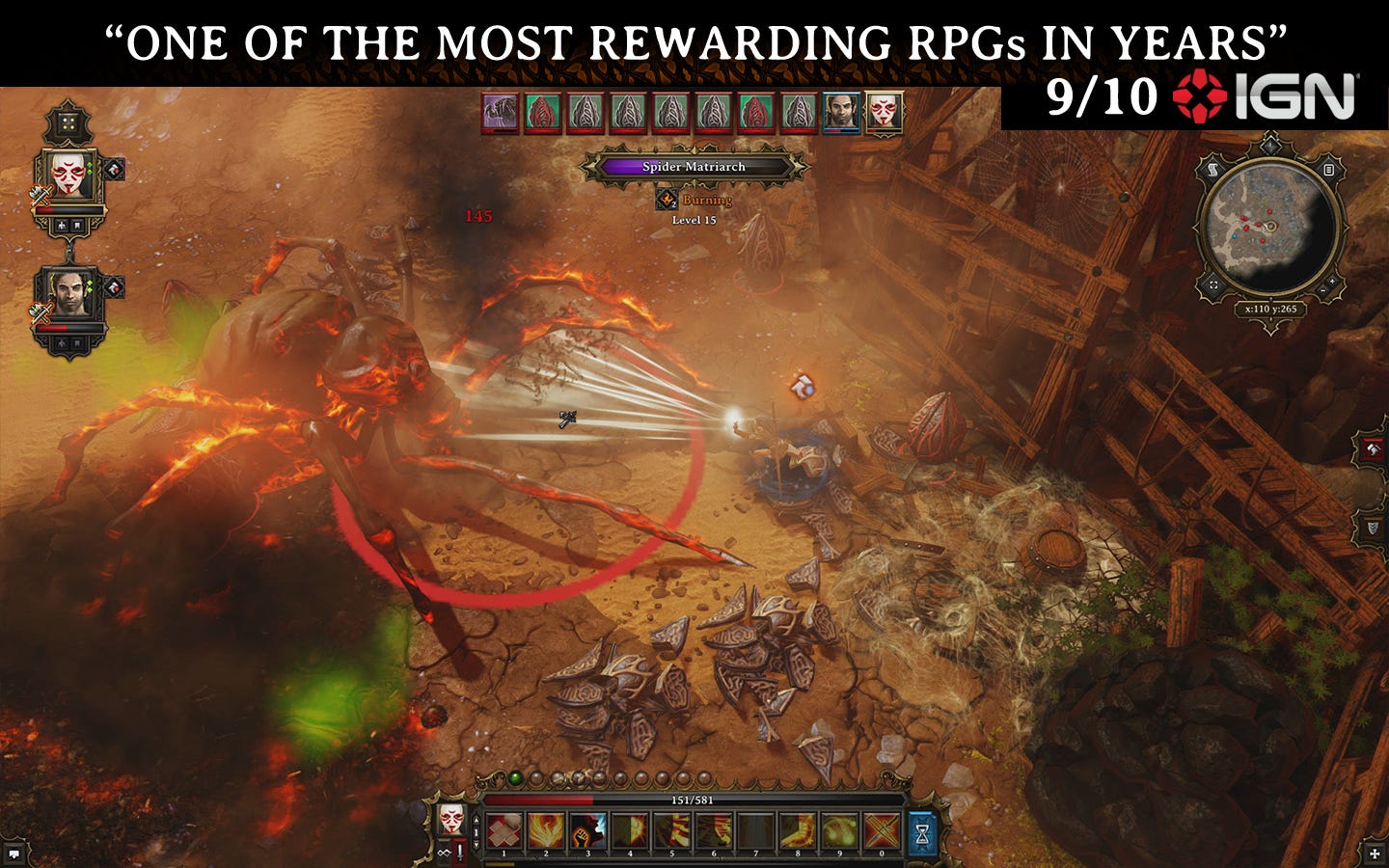5 great games from 2014
I made it a goal this year to, one, play more game, but, two, think critically about what I liked and disliked. The result is pretty mundane: a listicle.
1. Transistor
Released: May 20, 2014
Transistor is an isometric action RPG with both real-time and turn based game play. The graphics are gorgeous, the soundtrack is incredible, the voice acting is well done, and the game play is both intuitive and challenging.
This game ticked all the right boxes with me this year, all bundled up into the perfect length game. The story, coming in at around 7 hours for me, follows a famous singer in the aftermath of a catastrophic event in the city of Cloudbank; your only companion is a sword, the Transistor, containing the conciousness of a man you know.
And so the story begins, with the player in the dark about what happened, letting you explore the world taking in information both to progress and learn about the past. This works extremely well as the narrative jigsaw falls together for the heartbreaking conclusion.
The beautiful aesthetic, soundtrack, and narration seem to be a Supergiant staple, but the world building was still interesting to me. Being set inside what seemed to be a computer generated world, it was full of technological and programming references; even your attacks were displayed as Function() calls. The game was unapologetically complicated when it came to the world building and it worked perfectly. It let me get immersed in a realistic world without being condescending to my ability to understand what it was saying. As a programmer I may be biased here, and maybe the general public wouldn't get all the references and so the game wouldn't have the same affect.
The game play also worked wonderfully for me. It combined real-time combat with an interesting time-based combat. Essentially it allowed you to either run around and use your skills normally, or pause time and plan out your next few seconds of attacks, which would then all happen almost instantly. This came with the trade off of being unable to attack while this charged back up over the next few seconds.
It also had an interesting mechanic in which all of your upgrades could either be used as an attack, an upgrade to another attack, or a passive ability. This gave the game an enormous amount of customisation. What they did you prevent you falling into a routine set of attacks you like, however, was probably what lead to such an engaging experience: every time you died you temporarily lost one of your equipped skills. This could mean suddenly being without the attack your whole set-up relied on in the middle of a difficult fight you just died in. Now you need to re-evaluate all the abilities and probably try some combinations you wouldn't have done otherwise.
2. Wolfenstein: The New Order
Released: May 20, 2014
Wolfenstein: TNO is an FPS set an an alternative history where the Nazis won WWII with the help of advanced technologies. It looks great, and plays even better. This game is a no holds barred game with as ludicrous game play as setting and story. Wolfenstein was a game that by all rights, looking at the current state of AAA first person shooters, should have been rubbish. However, MachineGames pulled this one out of their hat: an intelligent, well paced and exciting campaign with tight game play.
The story was equal parts over the top gunfights, dual wielding machine guns killing robot Nazis on the moon, and quiet time, helping a your comrades with day to day things and falling in love. This is probably the greatest success of the game, and is one of the core philosophies that showed MachineGames knew what they were doing when writing the narrative. As Super Bunnyhop puts so well quiet time is extremely important to narratives as it allows exposition. It was thanks to this that a game that might have been a generic (although over the top and fun) shooter actually had an emotional story and you could form empathy with the characters.
Another success for this game was level design. This may just be because the current state of AAA FPS games is abysmal in this department, with linear “corridor shooters” filling the roster, and looking to the past you might wonder why games don't do this so much any more. The levels in Wolfenstein were interesting and multipathed. They had secrets and hidden vantage points. They promoted experimental and emergent game play, contrasting the extravagant gun-play with stealth and exploration.
3. Gang Beasts
Released: 29 Aug, 2014
Gang Beasts is a physics based fighting game with clay-like graphics. While it was officially released on the 29th of August, I had been playing this game for a while. After a year of experimenting with ideas and mechanics the team, Boneloaf, settled on Gang Beasts and released a demo to IndieDB. Since then the hilarious and addictive game play has made Gang Beasts a popular party game for myself and many others.
The simple yet unpredictable mechanics, mixed with the adorable graphics, make the game easily accessible and yet difficult to master and always entertaining. With such a simple game there really isn't much more to say.
10/10, would recommend!
4. Nidhogg
Released: 13 Jan, 2014
Nidhogg is another game capitalising on local multiplayer. This time, instead of clumsy and hilarious, it's fast-paced and tense.
The simple pixel graphics emphasis the games minimalist package, the game is purely focussed on it's core mechanics. Luckily they work very well: the controls are tight and responsive, there is a lower barrier to entry but a high skill ceiling, and there is both fast gratification and just as fast sorrow.
This simple game is worth every penny for some intense one-on-ones with your friends.
5. Divinity: Original Sin
Released: 30 Jun, 2014
Divinity: Original Sin is a classic RPG with more similarities to tabletop RPGs than other games in the genre. The extreme detail and back-to-the-roots game play make this game seriously exciting to play. The amount of interactivity the player has with the world is really what made me chose this game for the fifth slot of my GOTY.
The perfect example of this thoroughly world is the magic system. Every spell has the potential to work with other spells or the environment in expected or unexpected ways. You can make it rain on a a group of enemies and then electrocute them all with a single bolt of lightening. You can teleport a barrel above someone's head and squash them.
The deep level of roleplaying and interaction available in this game make it an easy pick for me, and I haven't even mentioned that it supports 4 player co-op and comes with an expansive modding/level editor tool meaning you can create your own adventures.
Honourable mentions
There were lots of great games this year, too many to write about. Here's a list of other games I though were great, but not good enough for the top 5.
- Age of Wonders III
- Insurgency
- Middle-earth: Shadow of Mordor
- Luftrausers
- Secrets of Rætikon
There was also games that didn't release this year but I poured a lot of hours into and though they were worth mentioning:
- Nosgoth
- Nuclear Throne
- Rising Storm
- Arma 3
- Space Engineers
- Hammerwatch
- FINAL FANTASY XIV: A Realm Reborn
- The Stanley Parable
Dishonourable mention
Watch_Dogs. Enough said.
All images from the respective Steam Store page.




